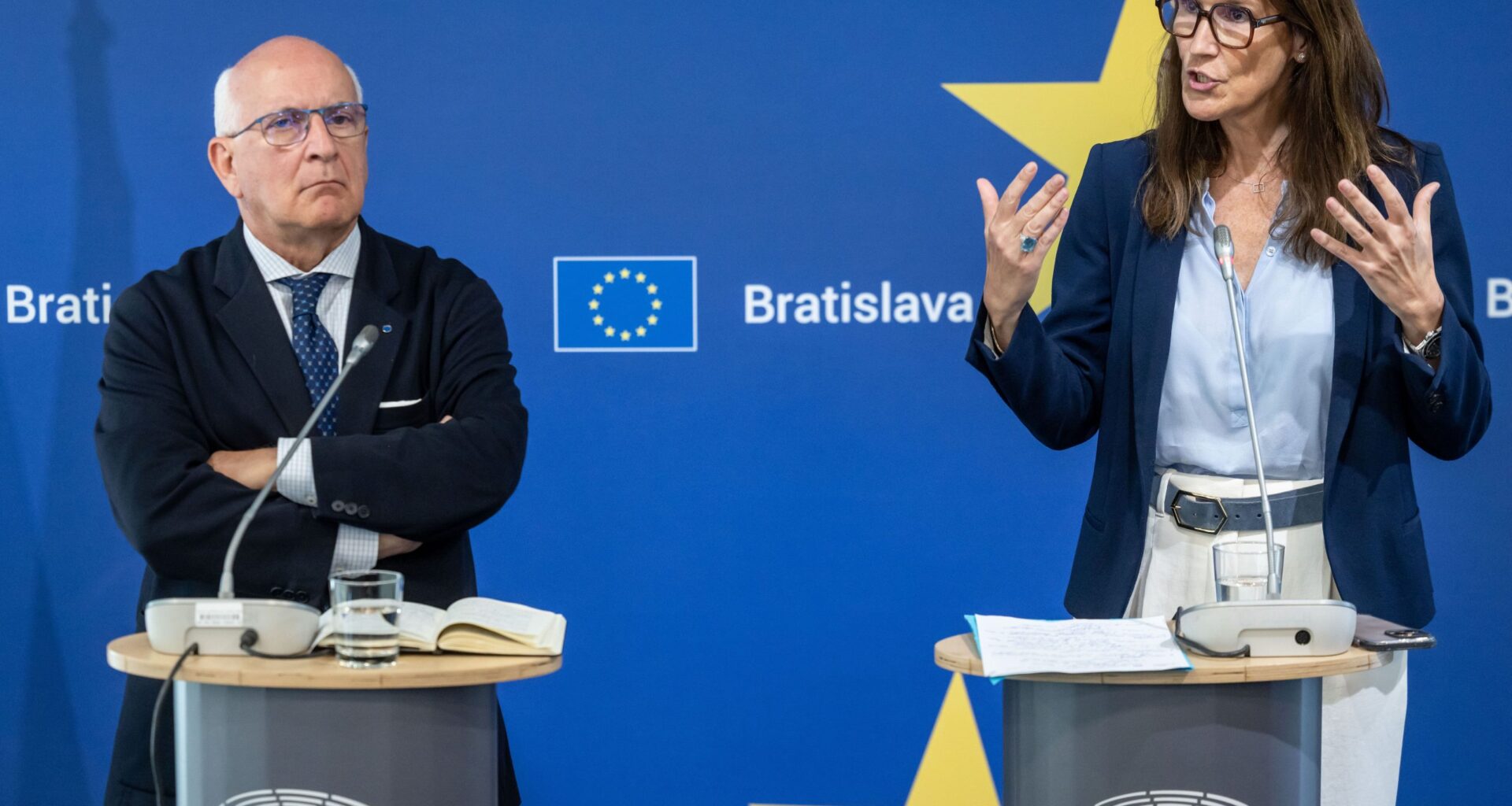BRATISLAVA – A four-member delegation from the European Parliament said that concerns about the state of the rule of law in Slovakia “were not unfounded”, but highlighted that ongoing communication between the government and the European Commission is a positive sign.
A delegation from the Committee on Civil Liberties, Justice and Home Affairs visited Bratislava for a two-day visit aimed at assessing the current state of democracy and rule of law.
During their stay, the MEPs met with representatives of the Slovak government, the National Council, the judiciary, the ombudsman, civil society organisations, and the media.
The visiting MEPs included Javier Zarzalejos (EPP, Spain), Sophie Wilmès (Renew, Belgium), Milan Uhrík (ESN, Slovakia), and Daniel Freund (Greens/EFA, Germany).
At a press conference on Tuesday, the Belgian MEP said she had been asked whether Slovakia was becoming “the next Hungary.”
“To be very honest, I cannot answer that question very definitely. But what is sure is that there are lot of signs that they are taking the same path, which is worrying. And this is why the difficult discussion needs to be done”, Wilmès said.
Still, she noted that all controversial laws of Prime Minister Robert Fico’s government had been discussed with the European Commission, which “shows that there is a willingness of this government to cooperate” – something the delegation welcomed.
They appreciated what they described as “respectful communication” throughout the visit, but nevertheless raised concerns in three key areas.
Attacks on the media, judiciary and NGOs
The MEPs condemned the harsh rhetoric used by Slovak officials against judges, the media and NGOs, warning that it fosters aggression against journalists and restricts access to information.
Wilmès expressed concern over the recent restructuring of the public broadcaster STVR and the use of accelerated legislative procedures.
Concerns were also voiced about the dismantling of the anti-corruption agency NAKA and the abolition of the Special Prosecutor’s Office, moves which, they say, weaken the fight against corruption.
Wilmès added that a new law forcing NGOs to disclose donor names could deter support and pose data privacy risks.
Yet another delegation
This was the second Parliament delegation to visit Slovakia in short succession. Last week, a delegation led by Czech MEP Tomáš Zdechovský visited the country for three days to monitor the use of EU funds.
This time, the visit was not accompanied by the same level of political tension, however.
During the previous mission, Fico referred to Zdechovský as a “hired political assassin,” while Interior Minister Matúš Šutaj Eštok described the delegation as a “punitive expedition.”
Zdechovský also accused the government of putting him under surveillance by intelligence services.
(cs/om)
